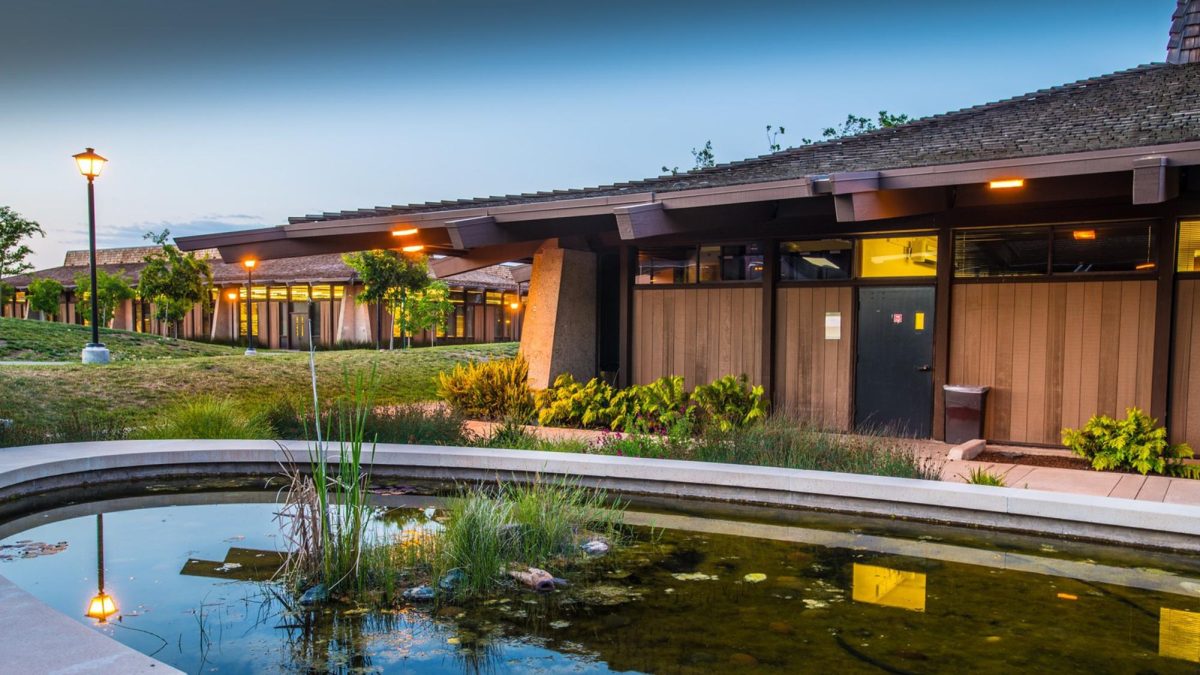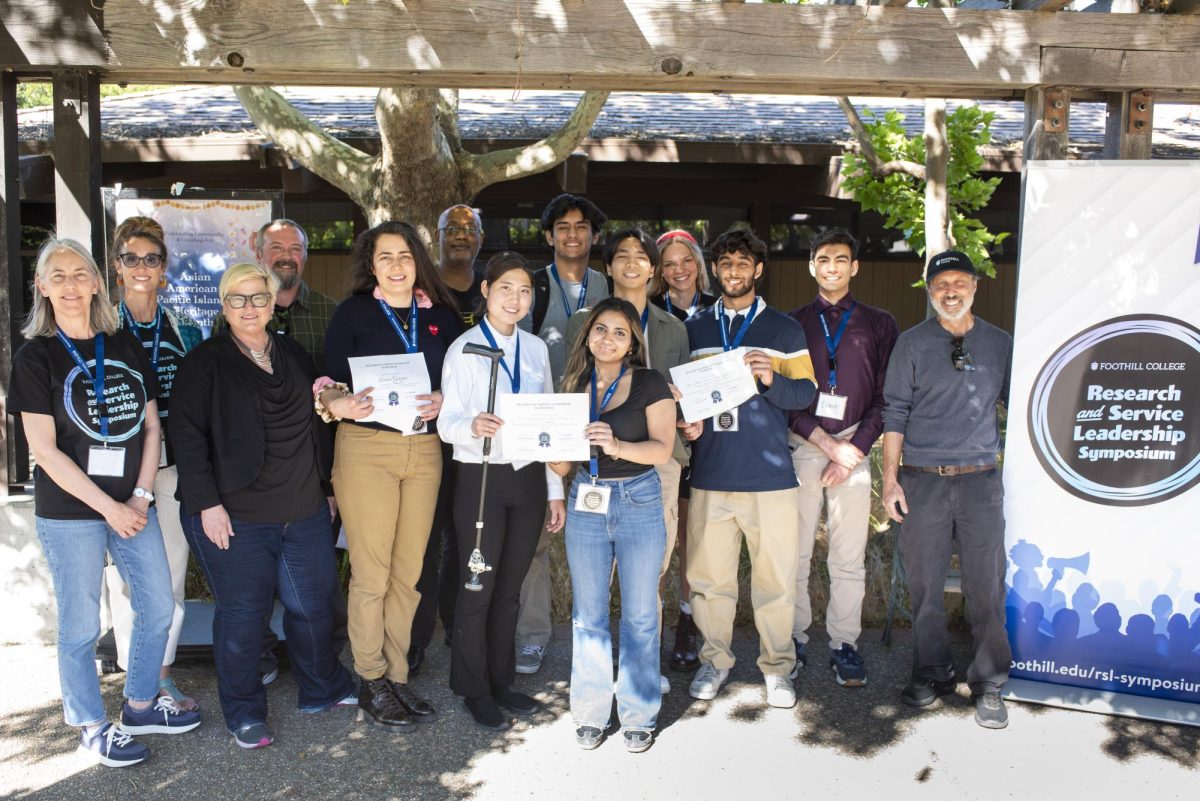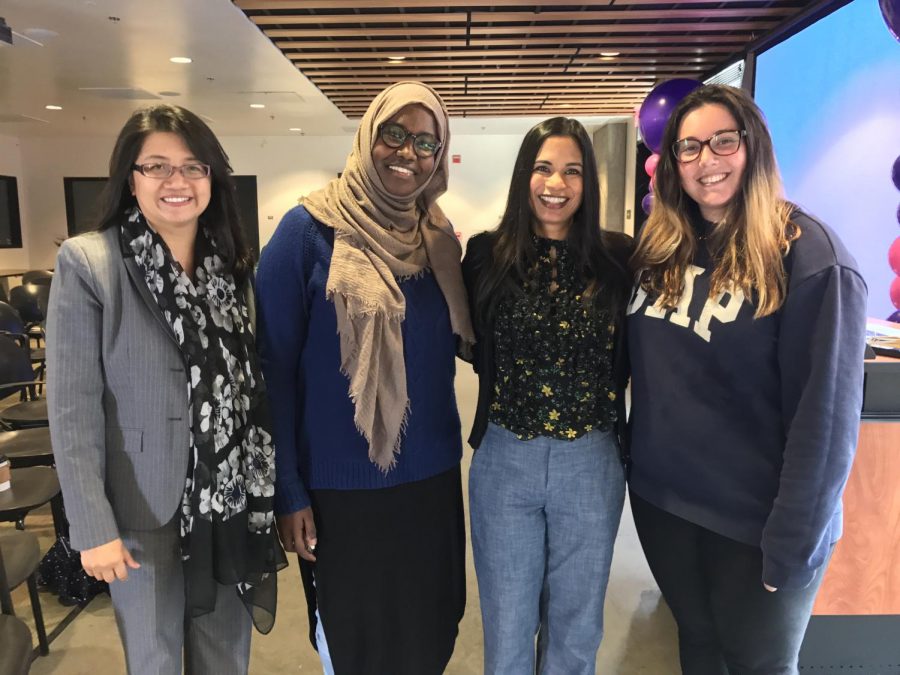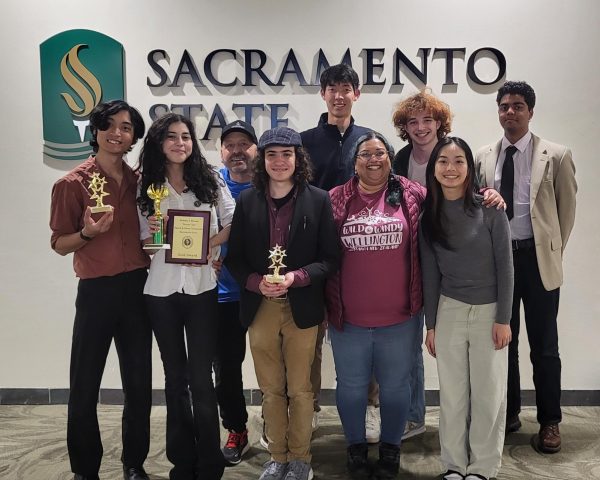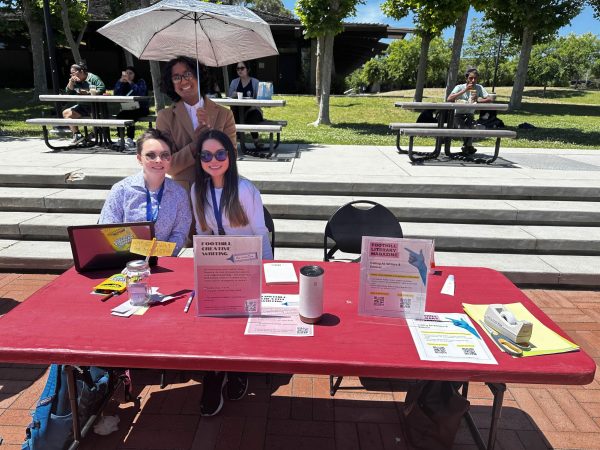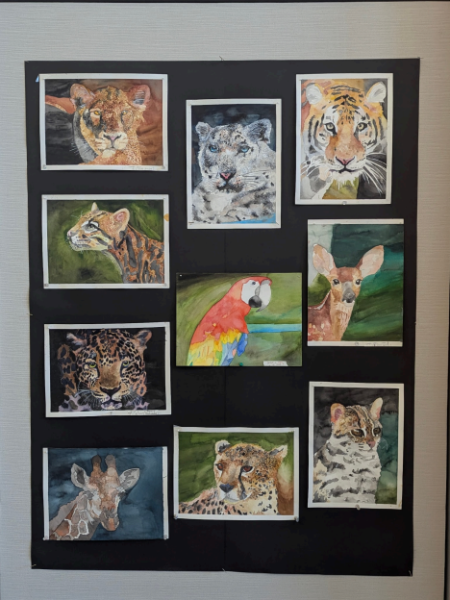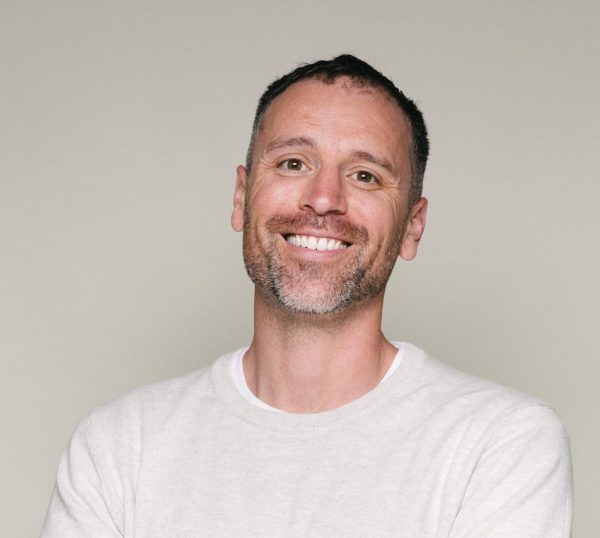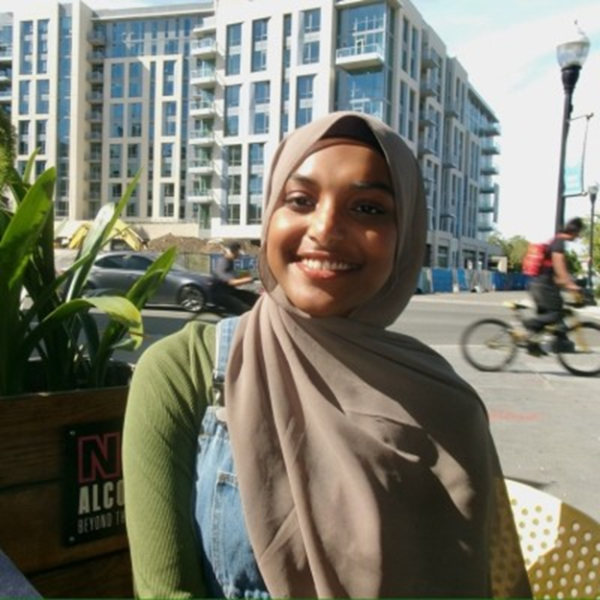Unveiled: Gender Equality in Islam
“What are the first words that we think of when we think of Muslim women?” Samina Ali, a Muslim women, artist, activist and curator of Muslima Art Online, posed the question in the first lecture series of Foothill College’s Women’s History Month. Ali mentioned three words people would answer:
Arab. Victim. Veiled.
The tendency for these words to turn into stereotypes, Ali believes, is not a coincidence. “Women in general are oversexualized in all forms of media,” she explained. “For Muslim women it’s even worse, because 91% of media representation of Muslim women is negative. The three most common ways they’re portrayed are veiled, victimized, and voiceless.”
Through Muslima Art Online, Ali and other artists try to undo these labels. “I’m using art to dismantle stereotype because there seems to be a singular narrative that comes out of a stereotype… and there is no one way at looking at anything,” Ali said.
With more than 200 artists, there are hundreds of perspectives tackling the conventional image of Muslim women. A notable example is an American Muslim woman by the name of Sadaf Syed, who took pictures of Muslim woman wearing hijabs doing everyday things.
According to Ali, there is a misconception along the lines of “If you’re American, you can’t be a Muslim. If you’re Muslim, you can’t be American.” These photographs by Syed show that the two are not so different. Wearing a hijab or not wearing one does not change a woman’s nationality; an American woman with or without a hijab is an American woman.
“There’s the American Muslim perspective on the veil, which is that every woman should have the right to veil whether she chooses to and the veil in itself is not a symbol of oppression. It’s the choice we made. Choice is the bottom line.” said Ali.
Muslim women from other countries have differing perspectives when it comes to veiling because for many of them, wearing a veil is not a choice. The veil series, captured by Boushra Almutawakel, arranges a series of photographs from past to present. In the past, Muslim women covered up with colorful scarves and young girls were not required to do so, but as fundamentalism started to spread through Yemen, women were no longer allowed to wear colorful scarves. Young girls and even dolls were covered up until the only their eyes were visible. Eventually, the picture becomes pitch black, eliciting how the women disappeared in face of what’s happening in her country.
There is gender equality in Islam, as in other religions and constitutions. However, there are also what Ali called the three pieces: “power, patriarchy, and politics.” According to Ali, those three things, which are present and ever so oppressive everywhere around the world regardless of religion, are what actually undermined gender equality, not the Islamic values themselves. Hence, the social stigma of being a Muslim is greatly unjustified, due to these misrepresentations of the Islamic values.
Moving on to something more light-hearted after showcasing these photographs, she then shared a satirical video with us, filmed and directed by Hala Alsalman. It depicts two very different women (especially in their attire) commuting in a train ride together. One wears very revealing and promiscuous clothing and the other is completely covered up from head to toe. Throughout the ride, these two women can’t stop judging each other’s choice of clothes, mentally projecting negative images of each other. Despite their contrasting appearances, one male commuter chooses to perceive them as similar through a more whimsical mental projection rather than a judgemental one, further highlighting that it is not the actual appearances themselves that matter, but in how we choose to interpret them from our limited perspective. The contrast is just an illusion, perceived from both our meta-perspective as an audience, and by those two women who have their own personal values, particularly on fashion.
While art is Ali’s approach when dismantling these stereotypes, she also acknowledges that each individual might tackle these issues in a different way. “Look at those high school students in Florida who have done so much in Florida regarding gun control. Look at the indivisible guide that was started by Carleton College students. There’s so much happening across this country that college students are starting and I don’t think this is the time to give up, I think this is the time for college students to really get together and start actively pursuing the kind of change that they want to see in the world.”
This is just the beginning of Foothill College Women’s History Month 2018. More information about future events can be found here.





